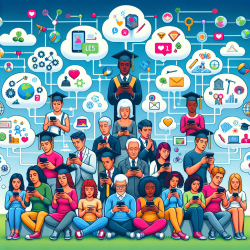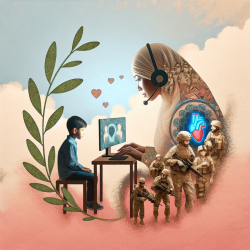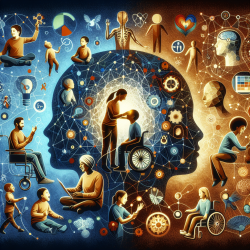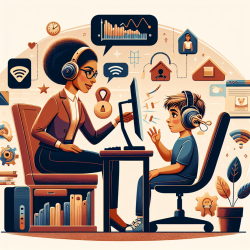The rapid growth of social media has significantly influenced the lives of young people worldwide. As educators and practitioners working with youth, it is essential to understand how these platforms impact identity formation and self-optimization in an increasingly competitive global culture. A recent research article titled Young people on social media in a globalized world: self-optimization in highly competitive and achievement-oriented forms of life provides valuable insights into this phenomenon.
The Socio-Ecological Evolutionary Framework
This research adopts a socio-ecological evolutionary (SEE) framework to examine young people's social media use. The SEE approach considers how individual, interpersonal, technological, and broader socio-cultural factors interact to influence young people's online activities and their developing identities. In modern market cultures characterized by competition and achievement orientation, social media becomes a critical arena for status and identity enhancement.
Key Findings and Implications for Practitioners
- Status and Identity Enhancement: Social media platforms provide young people with opportunities to signal their social status through displays of physical attractiveness, achievements, and material success. Practitioners should recognize these behaviors as part of young people's efforts to optimize their social standing.
- Cultural Transmission: Young people learn from prestigious peers and cultural figures, adopting idealized or extreme self-displays that are often unattainable. This highlights the importance of guiding youth towards realistic self-perceptions and intrinsic values.
- Psycho-Social Processes: The SEE framework identifies impression management, self-objectification, and social comparison as key processes in young people's social media use. Practitioners should focus on fostering healthy self-esteem and resilience to mitigate potential negative impacts.
- Diverse Developmental Trajectories: The research acknowledges that opportunities and access to resources are unequally distributed among young people. Practitioners must consider these disparities when supporting youth development.
Encouraging Further Research
The SEE framework offers a comprehensive model for understanding young people's social media use within competitive cultures. However, more research is needed to explore its applicability across diverse populations and developmental stages. Practitioners are encouraged to engage in longitudinal studies that examine how young people incorporate peer feedback into their online behaviors.
This research provides a valuable lens for practitioners seeking to enhance their understanding of youth development in the digital age. By applying these insights, educators can better support young people in navigating the complexities of social media while promoting healthy identity formation.
To read the original research paper, please follow this link: Young people on social media in a globalized world: self-optimization in highly competitive and achievement-oriented forms of life.










